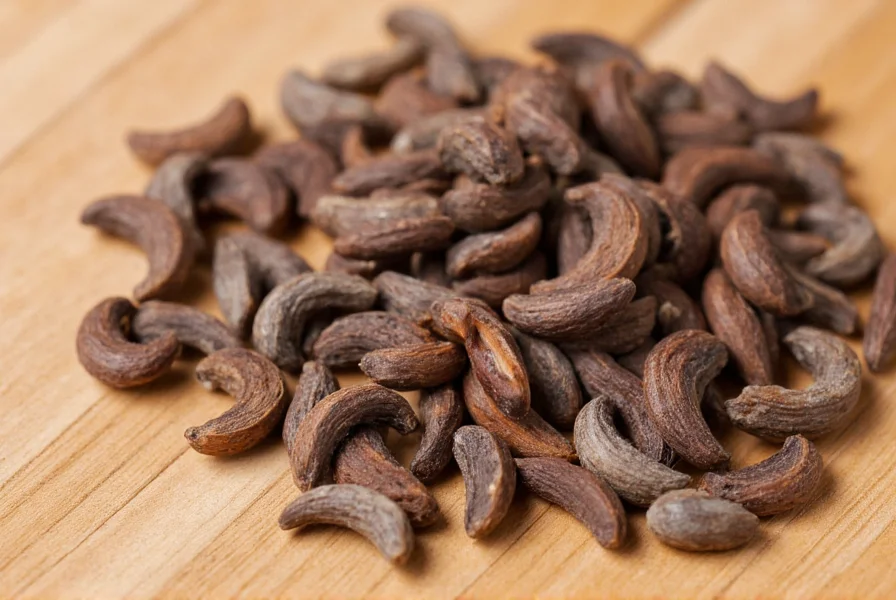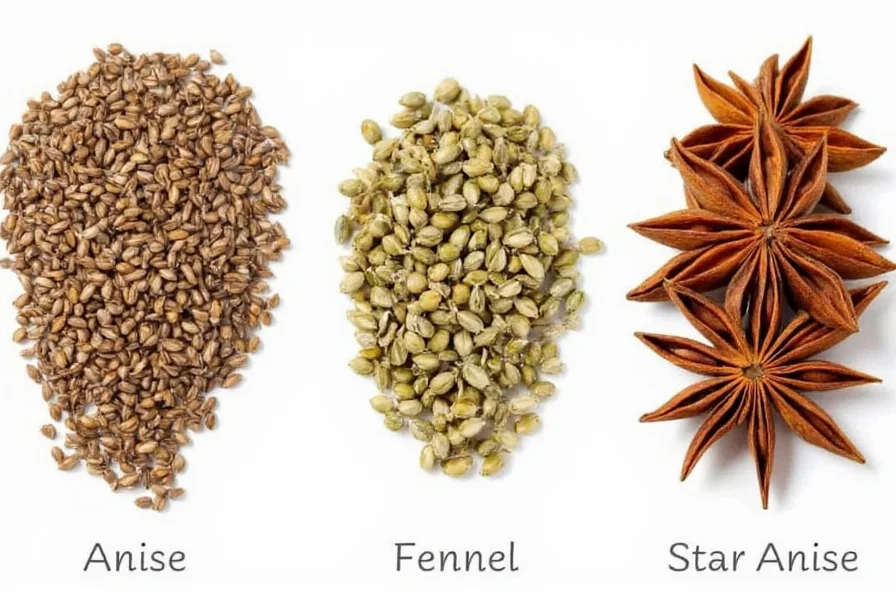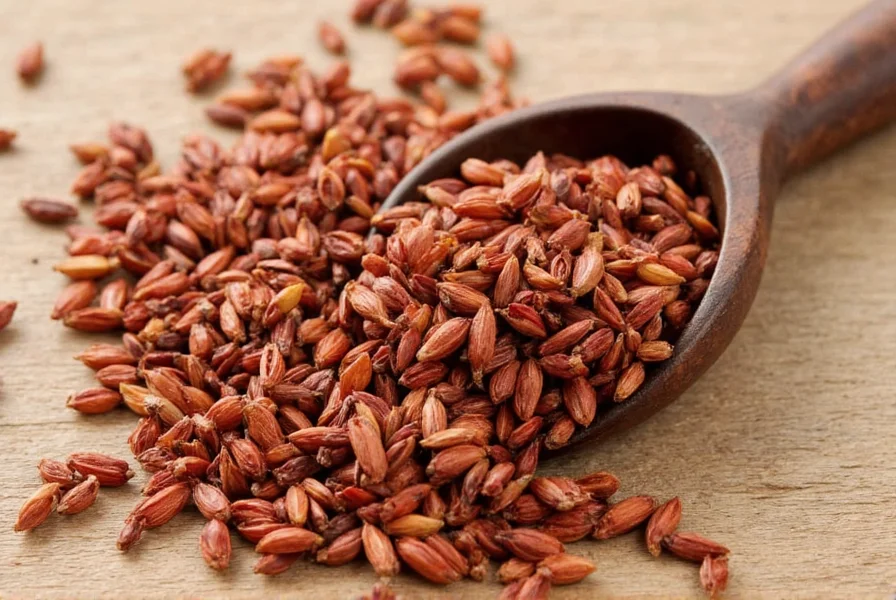Understanding how to pronounce anise correctly matters whether you're ordering at a specialty spice shop, discussing culinary techniques, or exploring herbal medicine. Many people mistakenly say 'uh-NEEZ' or 'AN-eez,' but the standard English pronunciation places clear emphasis on the first syllable with a crisp short 'i' sound.
Breaking Down Anise Pronunciation
The word anise contains two syllables that follow a specific phonetic pattern:
| Syllable | Phonetic Spelling | Sound Description |
|---|---|---|
| First (AN-) | /ˈæn/ | Like the "a" in "apple" or "ant" |
| Second (-iss) | /ɪs/ | Like the "i" in "miss" or "kiss" |
When saying the word, emphasize the first syllable strongly: AN-iss. The second syllable should be short and crisp, not drawn out. Think of how you'd say "ant" followed immediately by "kiss" without the "k" sound.

Anise vs. Aniseed: Clearing Up Confusion
Many people confuse anise with aniseed, and this confusion often affects pronunciation. Here's the distinction:
- Anise (pronounced AN-iss) refers to the flavor compound or the spice made from the seeds
- Aniseed (pronounced AN-ee-seed) specifically refers to the seeds themselves
While "aniseed" technically contains three syllables, many native English speakers shorten it to two syllables in casual speech (AN-iss), creating further confusion. In professional culinary or botanical contexts, maintaining the distinction shows expertise.
Common Mispronunciations to Avoid
When learning how to say anise correctly, be mindful of these frequent errors:
- uh-NEEZ - placing emphasis on the second syllable (incorrect)
- AN-eez - using a long 'e' sound instead of short 'i' (incorrect)
- uh-NICE - adding a long 'i' sound (incorrect)
- AN-iss-ee - adding an unnecessary syllable (incorrect)
These mispronunciations often happen because people associate anise with similar-sounding words like "aniseikonia" (a vision condition) or "anisette" (the liqueur), which have different pronunciation patterns.
Regional Pronunciation Variations
While AN-iss (/ˈæn.ɪs/) represents the standard American and British English pronunciation, some regional variations exist:
- American English: Clear AN-iss with a crisp short 'i'
- British English: Slightly softer, sometimes approaching AN-iss but with a more clipped second syllable
- Australian English: Often pronounced with a flatter vowel sound: AN-us
These differences rarely cause communication problems, but knowing the standard pronunciation helps in professional settings like culinary schools or herbal medicine practices.

Anise in Context: Usage Examples
Hearing the word in context helps cement proper pronunciation. Consider these examples:
- "The baker added AN-iss to the biscotti dough for that distinctive licorice flavor."
- "Traditional Greek ouzo gets its characteristic taste from AN-iss."
- "Many herbal teas include AN-iss for digestive benefits."
- "When measuring AN-iss, remember that a little goes a long way due to its potent flavor."
Differentiating Similar-Sounding Spices
People often confuse anise with other spices that have similar flavor profiles but different pronunciations:
- Fennel (FEN-ul) - often mistaken for anise but comes from a different plant
- Star anise (STAR AN-iss) - has a similar flavor but comes from a completely different plant family
- Anisette (AN-ih-ZET) - the liqueur made from anise, with a different pronunciation pattern
Understanding these distinctions helps avoid confusion when discussing ingredients in culinary or medicinal contexts. Knowing how to pronounce anise correctly positions you as knowledgeable whether you're shopping at a specialty market or consulting with a herbalist.
Practical Tips for Mastering Anise Pronunciation
Here are effective techniques to ensure you say anise correctly every time:
- Break it into two clear syllables: AN - iss
- Practice saying "ant kiss" quickly - this approximates the correct sound
- Record yourself and compare with native speaker examples
- Use the word in complete sentences to build muscle memory
- Ask for feedback from knowledgeable sources like chefs or herbalists
Remember that proper pronunciation of culinary and botanical terms demonstrates respect for the craft and helps ensure clear communication, especially when precise ingredients matter in recipes or herbal formulations.
How do you pronounce anise in a sentence?
In a sentence, anise is pronounced "AN-iss" as in: "The recipe calls for one teaspoon of AN-iss to achieve that distinctive flavor." The emphasis remains on the first syllable with a short 'i' sound in the second syllable, regardless of sentence context.
Is anise pronounced the same as aniseed?
No, while many people use the pronunciations interchangeably, there is a technical distinction. Anise (AN-iss) refers to the flavor compound or processed spice, while aniseed (AN-ee-seed) specifically refers to the seeds. However, in casual speech, both are often pronounced as AN-iss, particularly in American English.
What's the difference between anise and star anise pronunciation?
Both contain "anise" which is pronounced "AN-iss," but star anise has three syllables total. Star anise is pronounced "STAR AN-iss" with emphasis on the first syllable of each word. The "anise" portion maintains the same pronunciation as when said alone.
Why do people often mispronounce anise as 'uh-NEEZ'?
People often mispronounce anise as 'uh-NEEZ' because they associate it with similar words like 'aniseikonia' or 'anisette' which have different stress patterns. Additionally, the spelling suggests a long 'e' sound at the end, when in fact the 'e' is silent and the 'i' makes a short vowel sound. This spelling-pronunciation mismatch causes consistent errors.
Does the pronunciation of anise vary between American and British English?
The standard pronunciation of anise as 'AN-iss' is consistent across both American and British English. However, British speakers sometimes pronounce the second syllable with a slightly more clipped sound, while American speakers may elongate it minimally. These differences are subtle and don't affect mutual understanding. Both varieties maintain the primary emphasis on the first syllable.











 浙公网安备
33010002000092号
浙公网安备
33010002000092号 浙B2-20120091-4
浙B2-20120091-4